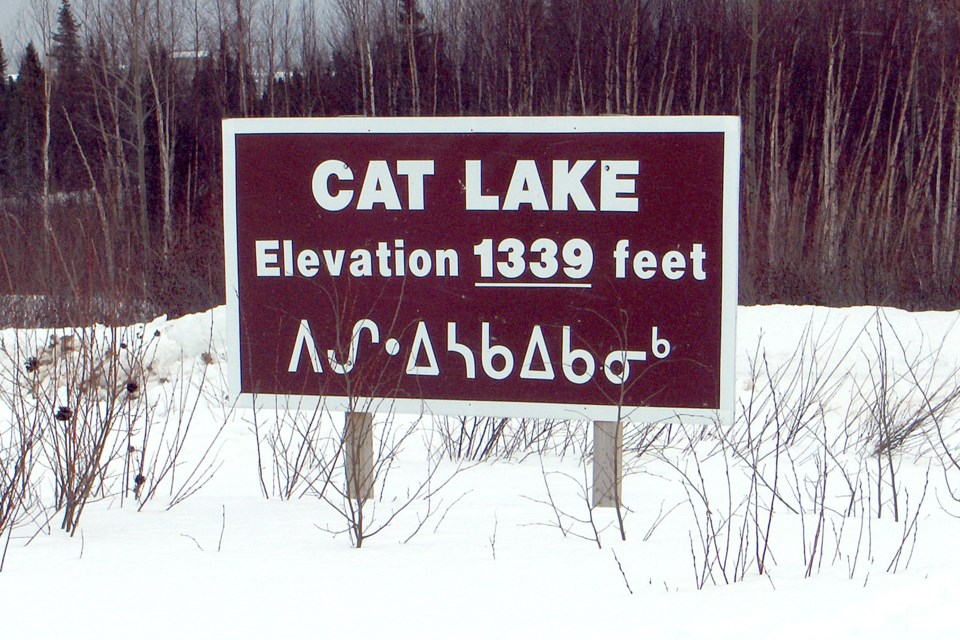CAT LAKE FIRST NATION – City dwellers may have welcomed the unseasonably warm December weather, but it made Cat Lake’s chief a tad nervous.
Chief Russell Wesley estimated in a recent interview that his remote community northeast of Red Lake might see a winter-road season of just four weeks, with half that time safe for light vehicles only.
That wouldn’t leave much time for the big trucks to deliver gasoline and building supplies for the homes he hopes to see put up in 2024.
New housing is important to Cat Lake as the community of 500 is still building to replace homes where inspectors found mould in 2018-2019. A report in early 2019 recommended that 87 of the 128 homes in the community at the time “be entirely replaced.”
If the gasoline Cat Lake’s 500 or so residents need has to be flown in, the shipping cost is much higher than by winter road, Wesley said.
Environment Canada climatologist David Phillips believes there is reason for concern.
December 2023 was about 9 C warmer than normal in Thunder Bay – “more like it would be typically in October,” he said in a phone interview.
“Across the North it’s been like that,” he noted. “In fact, all of Canada. I mean, I haven’t found one cold spot in all of Canada in the month of December.”
Even if this January has a return to typical temperatures, he said, “there’s a lot of stored heat in the lakes and the rivers and the land” from an autumn of above-normal temps. That stored heat will slow down the freezing that’s needed for ice roads that can take heavy trucks.
Phillips quipped that “it’s almost like you’re sending out search parties looking for winter. And of course, this has implications for Northern Ontario because of the ice roads.
“I mean, a lot of communities are really into almost a marooned kind of situation. They’re isolated. They normally would use ice roads to move in produce and machinery and equipment, lumber and things like that. But it’s just been where they’ve been just isolated.”
El Niño – a climate pattern that brings warmer-than-usual winters in Canada – has been “intense” and winter 2024 will likely be “milder than normal,” he said.
“Now, for January, I looked at the models this morning and what they’re saying for 2024,” he continued.
“Kind of interesting. It is showing warmer than normal all across Ontario and Quebec, Atlantic Canada, the far North, except in an area on the Prairies and in Northwestern Ontario … Kenora northward.”
Pikangikum First Nation, an Ojibwe community about 100 kilometres north of Red Lake, is in that exceptional zone.
Its weather has been cold enough to freeze the lake sufficiently for pickup trucks to travel on the ice, Pikangikum council member Richard Keeper said.
Pikangikum’s winter road is “not officially open, but we’ve been travelling the winter road for a week now,” he said. “So, like, through the bush area it’s all plowed out and on the lake we got it all plowed out.”
Keeper, who has many years of experience crossing the ice road to Pikangikum, estimated the lake ice is 15 inches thick. Big rigs need about double that thickness, he said, but he’s optimistic.
“We’re looking for a little more, but it’s supposed to be cold all this January. So hopefully that’ll build up.”
Like Cat Lake, Pikangikum is counting on winter-road trucking for supplies of gasoline, building materials and other essentials.
“That’s how they bring it in once there’s enough ice, which should be pretty soon,” Keeper said.
